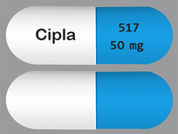Nausea, vomiting, loss of appetite, stomach ache, diarrhea, or darkening of the skin/nails may occur. Nausea and vomiting can be severe. In some cases, drug therapy may be necessary to prevent or relieve nausea and vomiting. Changes in diet such as eating several small meals or limiting activity may help lessen some of these effects. If these effects last or get worse, notify your doctor or pharmacist promptly.
Temporary hair loss may occur. Hair growth should return after treatment has ended or may even return during treatment. However, new hair may have a different color or texture.
People using this medication may have serious side effects. However, you have been prescribed this drug because your doctor has judged that the benefit to you is greater than the risk of side effects. Careful monitoring by your doctor may decrease your risk.
Tell your doctor right away if you have any serious side effects, including: signs of kidney or bladder problems (such as change in the amount of urine, pink/bloody urine), mouth sores, joint pain, stopping of menstrual periods, existing wounds that are slow healing, black/bloody stools, signs of liver problems (such as stomach/abdominal pain, yellowing eyes/skin, dark urine), mental/mood changes, muscle weakness/spasm.
This medication may rarely cause very serious effects on the heart, especially when used in high doses, or in combination with radiation treatment or certain other chemotherapy drugs (such as doxorubicin). Get medical help right away if you develop: chest pain, jaw/left arm pain, trouble breathing, irregular heartbeat, symptoms of heart failure (such as shortness of breath, swelling ankles/feet, unusual tiredness, unusual/sudden weight gain).
This medication decreases bone marrow function, an effect that may lead to a low number of blood cells such as red cells, white cells, and platelets. This effect can cause anemia, decrease your body's ability to fight an infection, or cause easy bruising/bleeding. Tell your doctor right away if you develop any of the following symptoms: unusual tiredness, pale skin, signs of infection (such as sore throat that doesn't go away, fever, chills), easy bruising/bleeding.
Cyclophosphamide may lessen the chance of having children in both men and women. Sterility is usually temporary with this medication, but can be permanent in some cases. Consult your doctor for more details.
Although cyclophosphamide is used to treat cancer, in some patients it may increase the risk of developing another form of cancer, sometimes months to years after treatment. Consult your doctor for more details. It is important to be closely monitored by your doctor during treatment. You should also see your doctor regularly after treatment is finished. Tell your doctor right away if you develop: unusual growths or lumps, swollen glands, unexplained or sudden weight loss, night sweats, pain in the pelvis, painful or frequent urination.
A very serious allergic reaction to this drug is rare. However, get medical help right away if you notice any symptoms of a serious allergic reaction, including: rash, itching/swelling (especially of the face/tongue/throat), severe dizziness, trouble breathing.
This is not a complete list of possible side effects. If you notice other effects not listed above, contact your doctor or pharmacist.
In the US -
Call your doctor for medical advice about side effects. You may report side effects to FDA at 1-800-FDA-1088 or at www.fda.gov/safety/medwatch-fda-safety-information-and-adverse-event-reporting-program.
In Canada - Call your doctor for medical advice about side effects. You may report side effects to Health Canada at 1-866-234-2345.



